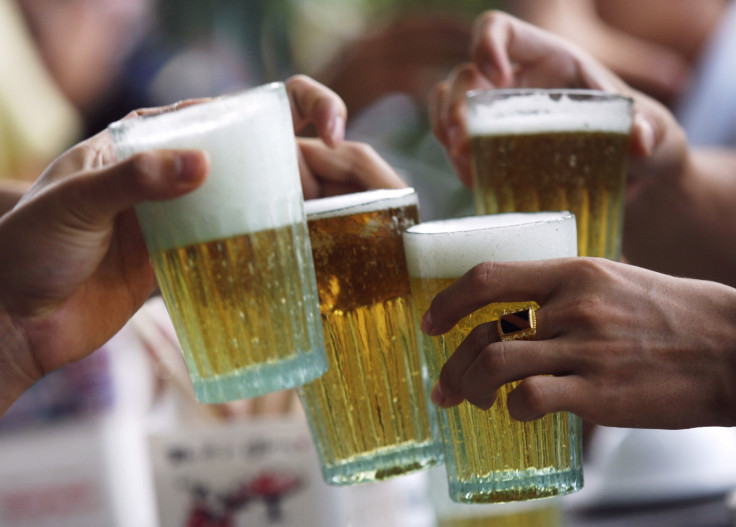Binge-drinking Britain: Almost three-quarters of weekend A&E admissions alcohol-related

UK hospitals are spending as much as £1m each annually in treating alcohol-related incidents as the number of injuries caused by booze continues to surge. According to a new report, almost three-quarters of admissions on weekends are now linked to excess alcohol intake.
Each drunken patient's treatment hovers between £250 and £850, and is costing a large inner city A&E department in the north east of England £1m a year, according to a case study. Over a period of four separate weeks in February-March, July, October and December during 2010-11, the team reviewed the case notes of attendees who needed to be treated for injuries sustained while intoxicated. They also tracked episodes of related care over the year that ensued.
In 2010-11, the team found that 636 of the 5121 (or 12%) of cases were alcohol-related. In 2012-13, this had risen to 15% overall, but when weekend cases were isolated, the figure shot up to 70%. Most of these patients were young men, aged between 18 and 24.
"This indicates a significant NHS burden if all such emergency departments in the UK are sustaining similar demands associated with alcohol-related attendance," the researchers - led by Dr Jim Connolly, Department of Emergency Medicine, Royal Victoria Infirmary, Newcastle upon Tyne NHS Foundation Hospitals Trust - found in their paper published in the Emergency Medical Journal. Although older people may cost more per patient, younger people as a group are more costly to the NHS because they have more alcohol-related attendances.
"Our results suggest that emergency departments would benefit from routinely providing staff to cover the night and early morning shifts, particularly at weekends, to cope with the high proportion of alcohol-related attendances at these times."
In a separate research paper, Dr Clifford Mann, emergency care consultant at Taunton and Somerset NHS Foundation Trust, suggests that drunken hospital visits are costing the NHS £3.5m a year. "Current national and international data describing the financial burden of alcohol are dramatic, yet the response of governments has been woefully inadequate," he writes, highlighting cheap booze as a cause for concern to the NHS.
"Currently it is perfectly feasible to purchase a volume of alcohol that represents a safe weekly maximum for less than £10. Alcohol at this price is cheaper than bottled water," he continues. "The economic, social, and medical consequences of current alcohol strategies create a compelling argument for improved legislation and regulation of alcohol sales."
© Copyright IBTimes 2025. All rights reserved.






















